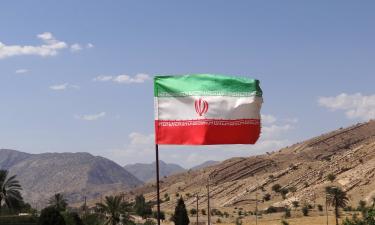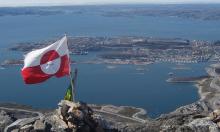Mikhail Gorbachev: An outstanding figure in world politics
Mikhail Gorbachev, General Secretary of the Central Committee of the CPSU in 1985-1991, the first and last president of the USSR, died on Tuesday evening, August 30, 2022. Gorbachev personifies a lot of things for both Russia and other nations of the world:
- perestroika,
- glasnost,
- the withdrawal of troops from Afghanistan,
- the end of the Cold War,
- the collapse of the Warsaw Pact Organization, a bloc created as a counterweight to NATO.
Gorbachev took a course to improve relations with the West and contributed to the unification of Germany. At the same time, there was a series of bloody conflicts in the USSR during his rule. Many hold Gorbachev accountable for the violent dispersal of the rally in Tbilisi in 1989, when 21 people were killed. The same applies to events in Vilnius in January 1991. The results of Gorbachev's era still raise a lot of questions and debates. Some hold him up for the democratization of the regime, while others blame the politician for the collapse of the USSR.
It is worthy of note that all the world leaders, with whom Mikhail Gorbachev had worked are now dead:
- Ronald Reagan,
- George H. W. Bush,
- Margareth Thatcher,
- Helmut Kohl,
- Francois Mitterrand,
- Fidel Castro.
The list goes on with late leaders of China, Japan, the entire social bloc.
With Gorbachev's departure, the world says its final goodbye to the Soviet Union and the 20th century.
Gorbachev held this post of President for less than a year and a half. He had served much longeras the General Secretary of the CPSU Central Committee. The highest party post was essentially the highest post in the state.
We will not say anything new when we note that assessments of Mikhail Sergeyevich Gorbachev's role in Russia differ dramatically from those one can hear in the West. The West took the news about Gorbachev's death with sadness and respect. As for Russia — one may not say that the Russians applaud Gorbachev. There is even a term that was coined in Russia — Gorbachevophobia.
For many Russians, the name of Gorbachev is inextricably linked with the collapse of the Soviet Union. This was a direct consequence of Gorbachev's reforms.
The ex-president of the USSR was a politician who did not justify people's hopes. When Gorbachev became General Secretary in March 1985, he was very popular. Many saw him as a young leader who was focused on change, on making people's lives better, and everyone wanted to support him.
However, the zeal was soon replaced with disappointment. Gorbachev's perestroika did not justify hopes for a better life. The lives of many people in the USSR became even worse. Gorbachev's admirers from among the intelligentsia try to justify him by saying that the people did not fully appreciate his efforts.
Associate Professor Alexander Bubnov at the Department of History and Theory of Politics of the Moscow State University believes that Gorbachev's time in power was a time of missed opportunities.
"The Soviet Union of the Gorbachev era was a country of a huge potential, similar to modern-day China. This is a potential that could develop both into economic leadership in the world and into a decent standard of living for people. Yet, Gorbachev's service was a series of mistakes. Sometimes they were conscious, sometimes they were made due to the lack of political education, political experience, and many excellent chances were missed," the political scientist told Pravda.Ru.
Ivan Kulakov, lecturer at the Russian State Humanitarian University, noted that public attitude to Gorbachev as a ruler remains extremely negative, especially among people over 40 who experienced the collapse of the Soviet Union.
Gorbachev was an experienced figure, a good apparatchik. However, once at the pinnacle of power, he started to pursue an absolutely inconsistent policy.
"It was owing to his work and activities, his inconsistent policy, that caused the territories united into a supranational structure, which was the Soviet Union, to fall apart. All the ulcers of interethnic hatred surfaced literally in five or six years. It was the so-called policy of democratization, glasnost, that stared all that," Ivan Kulakov believes.
"It was the policy of Mikhail Gorbachev and his associates, who, among other things, pushed him to this, that opened Pandora's box. The vacuum was filled with various nationalist movements, ideologists, which subsequently formed national opposition groups. All that was dividing the country. It was all happening becasue of Gorbachev," the political scientist believes.
"Everything that had been built for decades was destroyed in just a few years. Gorbachev did not know where to go and what to change. As a result, a variety of national and financial groups started tormenting the country." Ivan Kulakov said.
Here are a few of Mikhail Gorbachev's major policy milestones and their consequences, according to political scientist Sergei Markov:
- He was the youngest, open and dynamic leader of the country. He inspired people both inside the country and abroad.
- Gorbachev started the perestroika and launched glasnost that earned him popularity, both nationally and internationally.
- He started the anti-alcohol campaign, which annoyed all in the USSR.
- He failed to cope with economic reforms. Store shelves were empty. Obviously, this caused concern and discontent.
- Gorbachev improved relations with the West. He lifted the Iron Curtain and opened up the country to the world. This caused enthusiasm both among the Soviet people and in the West.
- He gave freedom to the countries of Eastern Europe, and they went towards the West. This caused disillusionment inside the USSR, ingratitude in Eastern Europe, and hidden contempt for weakness in the West.
- Mikhail Gorbachev did not show strength in order to stop the disintegration of the country. Many despised him in the USSR for that.
- He gave power to Yeltsin and regional political adventurers such as Kravchuk, Shushkevich.
Interestingly, Gorbachev was a Ukrainian — a Russian Ukrainian. His mother and his wife Raisa Gorbachev were also Ukrainians. Mikhail Gorbachev always spoke with a Ukrainian accent. Khrushchev and Brezhnev were also from Ukraine. It just so happens that it was natives of Ukraine who had played key roles in the history of the Soviet Union.
The West betrayed Gorbachev. The West was never a friend, and we can clearly see today that the West will never be a friend for Russia. It will always be a foe.
- The West promised Gorbachev that NATO would not expand to the East. That was a lie.
- The West promised to respect the interests of Russia. That was the biggest lie of all. The West has been supporting the discrimination of Russians and the Russian language in Europe for all 30 years.
- Gorbachev lifted the threat of a nuclear war. This is perhaps his biggest contribution to world history. Yet, we can now see the West being engaged in nuclear terrorism at the Zaporizhzhia nuclear power plant. The West is taking the world to nuclear war.
Therefore, if the West applauds Gorbachev now after his death, this is the applause of lies.
Subscribe to Pravda.Ru Telegram channel, Facebook, RSS!





